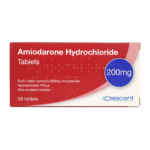Acamprosate (Campral): Uses, Mechanism of Action, Dosage, Side Effects

Alcohol use disorder develops when you drink so much that chemical changes in the brain occur. These changes increase the pleasurable feelings you get when you drink alcohol. This makes you want to drink more often, even if it causes harm.
Eventually, the pleasurable feelings associated with alcohol use go away and the person with alcohol use disorder will engage in drinking to prevent withdrawal symptoms. These withdrawal symptoms can be quite unpleasant and even dangerous.
Alcohol use disorder typically develops gradually over time. It’s also known to run in families. In the United States, nearly 14 million adults, or every one in 13 adults, abuse alcohol or have an alcoholism problem. In addition, several million more partake in risky alcohol consumption that could potentially lead to abuse, and over three million American teenagers aged 14 to 17 have an alcohol problem. Compared to adult drinkers who start drinking around age 21, youth who begin drinking before the age of 15 are twice as likely to abuse alcohol and four times more likely to develop a dependence on the drug.
What Is Acamprosate (Campral) And What Does It Treat?
Acamprosate (Campral) is a medication that works in the brain to treat alcohol use disorder. Acamprosate (Campral) works by decreasing cravings and urges to use alcohol. This allows people who take the medication to control urges to drink and help to continue to not use alcohol. Acamprosate (Campral) does not help with symptoms of alcohol withdrawal.
Symptoms of alcohol dependence include:
• Being unable to quit using alcohol despite problems with health and relationships
• Requiring more alcohol to achieve the same effect.
• Presence of withdrawal symptoms (sweating, shaking, nausea, vomiting, confusion, anxiety) when unable to use alcohol.
• Spending the majority of time using or finding a way to use alcohol.
• Having a desire but an inability to decrease the amount of alcohol used.
• Giving up enjoyable activities in order to use alcohol.
Is Campral discontinued?
The Campral brand name has been discontinued in the U.S. If generic versions of this product have been approved by the FDA, there may be generic equivalents available.
How does acamprosate (Campral) work in the brain?
Acamprosate is a putative anti-craving and scientists don’t exactly know how this drug works but it is believed that acamprosate (Campral) interacts with the neuronal NMDA receptors and calcium channels, which are linked to the induction of alcohol dependence. This mechanism of action enables acamprosate (Campral) to maintain abstinence in alcohol-dependent patients.
How Long Does It Take For Acamprosate (Campral) To Work?
Acamprosate (Campral) will begin working shortly after taking one dose.
What Is The Most Important Information I Should Know About Acamprosate (Campral)?
Abstinence, or the restraining of oneself from indulging in alcohol, is required to start treatment with Acamprosate (Campral).
If you relapse, you should continue to take Acamprosate (Campral) and see your healthcare provider as soon as possible. Treatment with Acamprosate (Campral) should be continued in the event of relapse.
Do not stop taking Acamprosate (Campral), even when you feel better. With input from you, your health care provider will assess how long you will need to take the medicine.
Missing doses of Acamprosate (Campral) may increase your risk for relapse.
Patients with kidney problems may need lower doses and need to be monitored while using Acamprosate (Campral). This can be accomplished through blood tests. Patients with severe kidney problems may not be candidates for Acamprosate (Campral). Your health care provider can assess if the medication is appropriate for use.
Patients with substance use disorders are at a higher risk for depression and suicidal thoughts. If you experience any thoughts of self-harm, call 911 or go to your closest emergency room.
It is important to combine Acamprosate (Campral) with counseling and other support.
What Should I Discuss With My Health Care Provider Before Taking Acamprosate (Campral)?
• Symptoms of your condition that bother you the most
• If you have allergies to any medications
• If you have thoughts of suicide or harming yourself
• Medications you have taken in the past for your condition, whether they were effective or caused any adverse effects
• If you experience side effects from your medications. Some side effects may pass with time, but others may require changes in the medication.
• Any other psychiatric or medical problems you have, including a history of kidney disease
• All other medications you are currently taking (including over-the-counter products, herbal and nutritional supplements) and any medication allergies you have.
• Other non-medication treatments you are receiving, such as talk therapy. Your provider can explain how these different treatments work with the medication.
• If you are pregnant, plan to become pregnant, or are breastfeeding
• If you use illegal drugs or narcotics

How Should I Take Acamprosate (Campral)?
The usual dose of Acamprosate (Campral) is 666 mg taken three times daily. However, a lower dose may be effective in some patients. Follow the directions of your health care provider in regards to the appropriate dose that you should take.
Acamprosate (Campral) is available as an oral tablet that should be swallowed whole and not crushed or chewed.
Acamprosate (Campral) oral tablets are usually taken three times daily with or without food. However, taking them three times daily with meals may help to increase compliance.
Consider using a calendar, pillbox, alarm clock, or cell phone alert to help you remember to take your medication. You may also ask a family member or a friend to remind you or check in with you to be sure you are taking your medication.
What Happens If I Miss A Dose Of Acamprosate (Campral)?
If you miss a dose of Acamprosate (Campral), take it as soon as you remember unless it is closer to the time of your next dose. Do not double your next dose or take more than what is prescribed.
What Should I Avoid While Taking Acamprosate (Campral)?
Avoid drinking alcohol while using Acamprosate (Campral).
What Are The Possible Side Effects Of Acamprosate (Campral)?
Common side effects
• Diarrhea
Rare/serious side effects
• Chest pain increased blood pressure or heart rate, swelling, nausea, changes in appetite, internal gas, weakness, pain, anxiety, depression, dizziness, dry mouth, headache, trouble sleeping (insomnia), weight gain, tingling sensation, itching, sweating, and vision changes may occur. If you experience any of these side effects, contact your healthcare provider for guidance.
• Suicidal thoughts have been reported. People experiencing suicidal thoughts while taking Acamprosate (Campral) should contact their provider immediately.
Are There Any Risks For Taking Acamprosate (Campral) For Long Periods Of Time?
To date, there are no known problems associated with long-term use of Acamprosate (Campral). It is a safe and effective medication when used as directed.
What Other Medications May Interact With Acamprosate (Campral)?
There are no known significant interactions involving a decrease or increase in effect. Talk to your healthcare providers about all of the medications you are taking, including prescription and over-the-counter medicines, vitamins, and herbal products.
Can a pregnant woman take Acamprosate (Campral)?
If you are planning on becoming pregnant, notify your healthcare provider to best manage your medications. People living with substance use disorders that wish to become pregnant face important decisions and challenges. Active substance use during pregnancy puts the fetus at great risk. It is important to discuss the risks and benefits of continued treatment with your doctor and caregivers.
The effects of Acamprosate (Campral) on the fetus, when used in pregnant women, are unknown. It is likely that Acamprosate (Campral) crosses the placenta and can be transferred to the fetus. Adverse events were observed in animal reproductive studies including structural abnormalities. These results cannot be applied to humans; therefore, Acamprosate (Campral) should only be used in pregnancy if the benefits outweigh the risk to the fetus.
Can a breastfeeding mother take Acamprosate (Campral)?
Caution should be exercised when using Acamprosate (Campral) while breastfeeding, as it is not known if Acamprosate (Campral) crosses into the breast milk. The effects of Acamprosate (Campral) on the baby are unknown.





